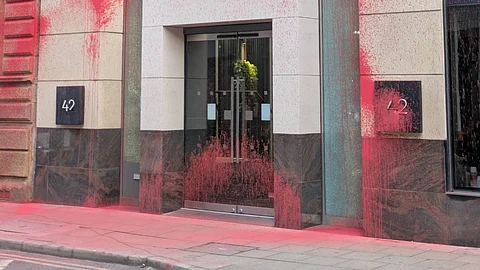

The British government is set to vote on 23 June to classify Palestine Action, an anti-Israel activist group, as a terrorist organization.
Home Secretary Yvette Cooper will present a statement to parliament, prompted by recent actions, including a break-in at RAF Brize Norton, the UK’s largest airbase.
Two activists on electric scooters damaged two Airbus Voyager planes with red paint and crowbars, targeting the base’s role in supporting Israel’s genocide in Gaza.
The proposed ban would criminalize membership in the group, marking a significant escalation in the government’s response to its activities.
Founded in 2020, Palestine Action has focused on disrupting UK-based operations of Israeli arms manufacturer Elbit Systems, claiming responsibility for over $2.4 billion in lost contracts through sabotage and protests.
The group justifies its actions as resistance to Britain’s involvement in Israel’s genocide in Gaza, citing RAF Akrotiri in Cyprus as a hub for surveillance flights and weapons transport.
Facing the potential ban, Palestine Action relocated a planned protest from near parliament to Trafalgar Square after police imposed restrictions.
The group called the proscription “absurd,” arguing it undermines democratic principles.
The Brize Norton incident triggered a security review across UK military bases, with counter-terrorism police investigating alongside Thames Valley Police and the Ministry of Defence.
Metropolitan Police chief Mark Rowley expressed frustration, labeling Palestine Action an “organized extremist criminal group,” though he noted police cannot ban protests until the group is proscribed.
Prime Minister Keir Starmer condemned the break-in as “disgraceful.” Critics, including Palestine Action, argue the government’s crackdown, including prior terrorism charges against members like co-founder Richard Barnard, reflects coordination with Israeli officials to suppress dissent, raising questions about protest rights and state priorities.